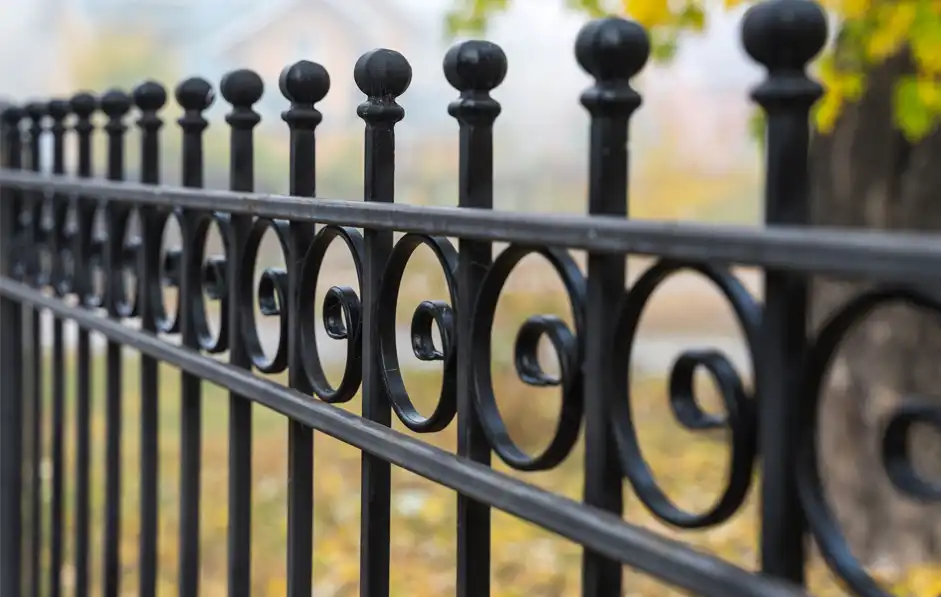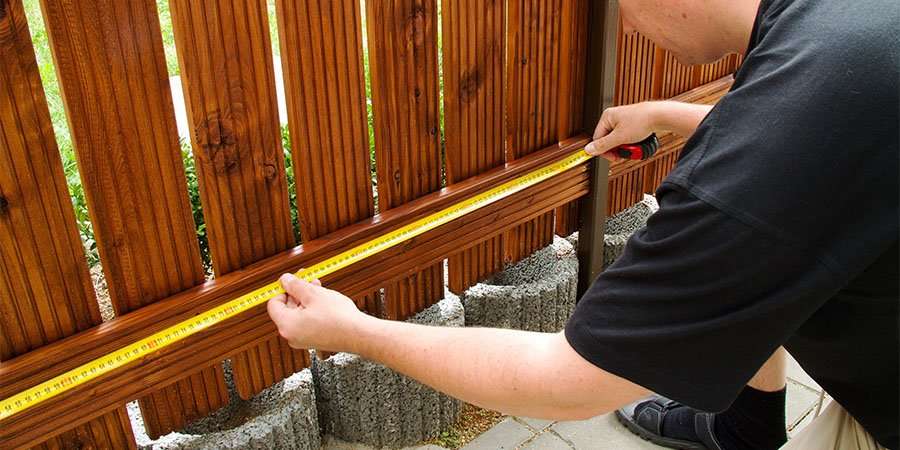All Categories
Featured

Amongst the most prominent choices, wood, plastic, and light weight aluminum each offer one-of-a-kind advantages and drawbacks. Right here's a malfunction of the pros and disadvantages of these 3 usual secure fencing materials.
Wood Fencing. Wood secure fencing has actually been an ageless selection for property owners as a result of its natural appeal and convenience.
Pros:. Aesthetic Allure: Timber uses a cozy and traditional look that enhances a range of building styles. Personalized: It can be painted, tarnished, or cut into one-of-a-kind designs to match individual choices. Cost-Effective: Originally, timber fencing can be an inexpensive choice contrasted to other products. Eco-Friendly: Timber is an eco-friendly resource and can be sustainably sourced. Cons:. High Upkeep: Wood calls for normal securing, staining, or painting to avoid rot, insect damages, and weathering. Longevity Problems: Without correct care, wood can warp, split, or decay gradually, especially in locations with high moisture. Shorter Life-span: A wood fencing usually lasts 10-20 years, relying on the kind of timber and degree of upkeep. Timber is suitable for those who value a traditional appearance and agree to devote to its upkeep.
Plastic Secure Fencing. Plastic is a modern, low-maintenance secure fencing alternative that has actually expanded in popularity recently.

Pros:. Low Upkeep: Vinyl does not require painting, discoloration, or sealing and can be quickly cleaned with soap and water. Weather condition Resistant: It endures harsh weather without decaying, rusting, or warping. Durable: Vinyl fencings can last 20-30 years with very little upkeep. Selection of Styles: Offered in numerous shades, styles, and appearances, some vinyl options simulate the appearance of timber. Cons:. Higher Upfront Price: Plastic fence can be more costly initially compared to wood. Brittleness in Cold Weather: In severe cool, plastic might crack or become breakable. Minimal Services: Individual panels can be tough to change, needing careful matching to the existing fencing. Vinyl is best fit for property owners seeking a long lasting, low-maintenance remedy with modern appearances.
Aluminum Secure Fencing. Aluminum fencing is a lightweight and resilient option, typically picked for its modern appearance and convenience.
Pros:. Rust-Resistant: Aluminum does not rust, making it a superb choice for damp or damp environments. Low Upkeep: Needs very little upkeep and is simple to clean. Long lasting: While lightweight, aluminum is solid enough to withstand many ecological conditions. Long Life-span: Can last several decades without significant wear or deterioration. Range of Styles: Uses a elegant and sleek look, typically made use of for ornamental or decorative purposes. Cons:. Greater Price: The preliminary financial investment for light weight aluminum fencing is greater than timber or plastic. Less Privacy: Light weight aluminum fencings are frequently made with open pickets, making them much less efficient for personal privacy. At risk to Damages: Although durable, light weight aluminum can be dented by solid effects. Aluminum is ideal for those seeking an elegant, resilient choice that calls for marginal treatment.
Making the Right Selection. Each secure fencing product-- aluminum, vinyl, and timber-- offers unique advantages and disadvantages. Your choice should depend upon your specific concerns, such as budget plan, maintenance preferences, climate, and aesthetic objectives:
If you enjoy a typical appearance and don't mind normal upkeep,Pick wood. Decide for vinyl if you desire a low-maintenance, weather-resistant fence with contemporary charm. Go with aluminum if you prioritize toughness, rust resistance, and a smooth style. By evaluating these benefits and drawbacks, you can choose a fence product that boosts your property while meeting your functional requirements.
Latest Posts
Learn How to Reduce Expenses on Car Maintenance with Montclare Auto Repair’s Exclusive Deals
Published en
1 min read
Specialist Commercial Roof Solutions in North Platte, Nebraska
Published en
2 min read
Dependable Expenses Door Solutions for Residences and Services
Published en
1 min read
More
Latest Posts
Learn How to Reduce Expenses on Car Maintenance with Montclare Auto Repair’s Exclusive Deals
Published May 27, 25
1 min read
Specialist Commercial Roof Solutions in North Platte, Nebraska
Published May 24, 25
2 min read
Dependable Expenses Door Solutions for Residences and Services
Published May 23, 25
1 min read